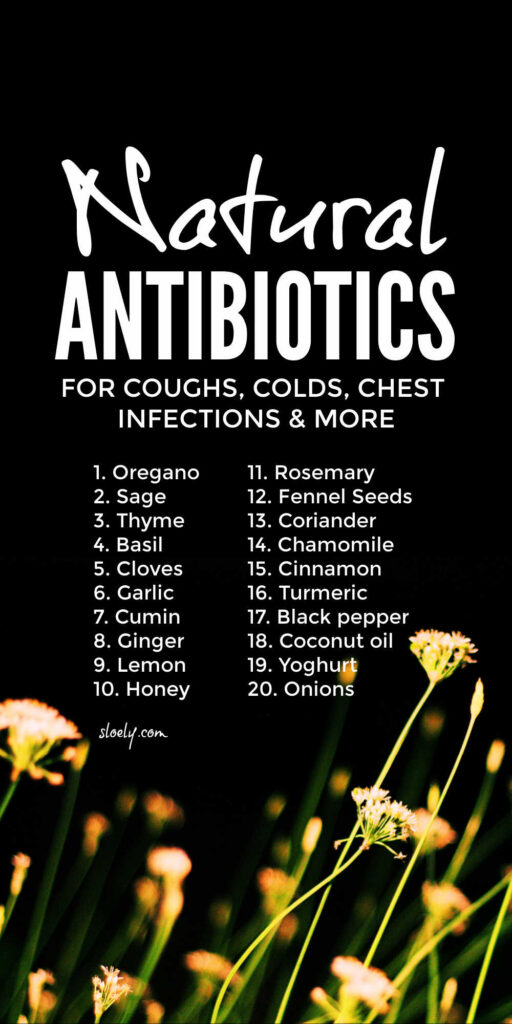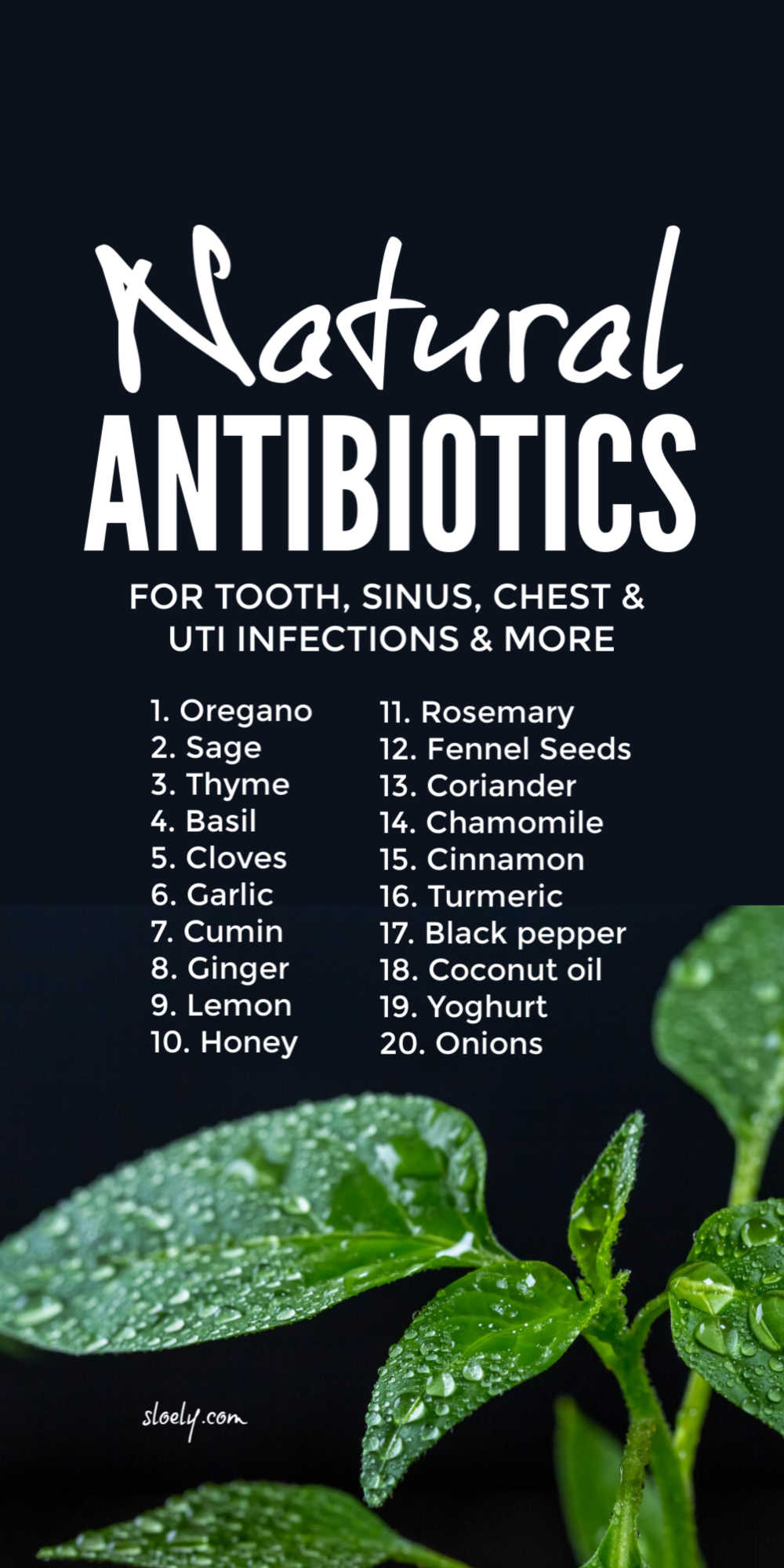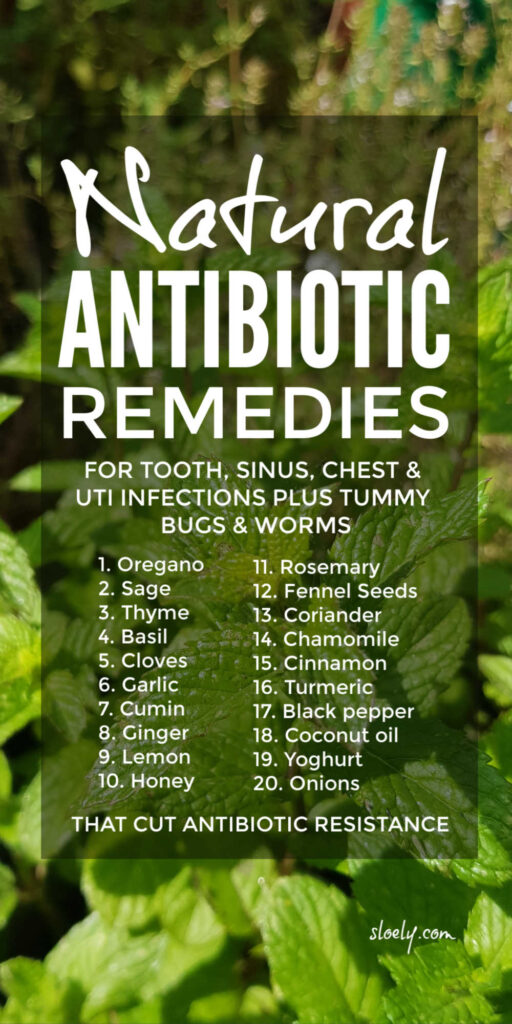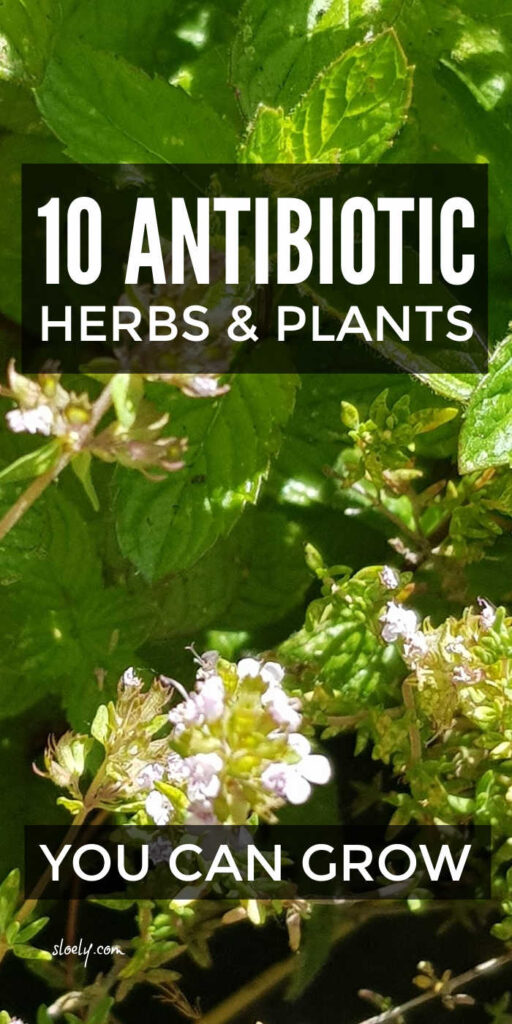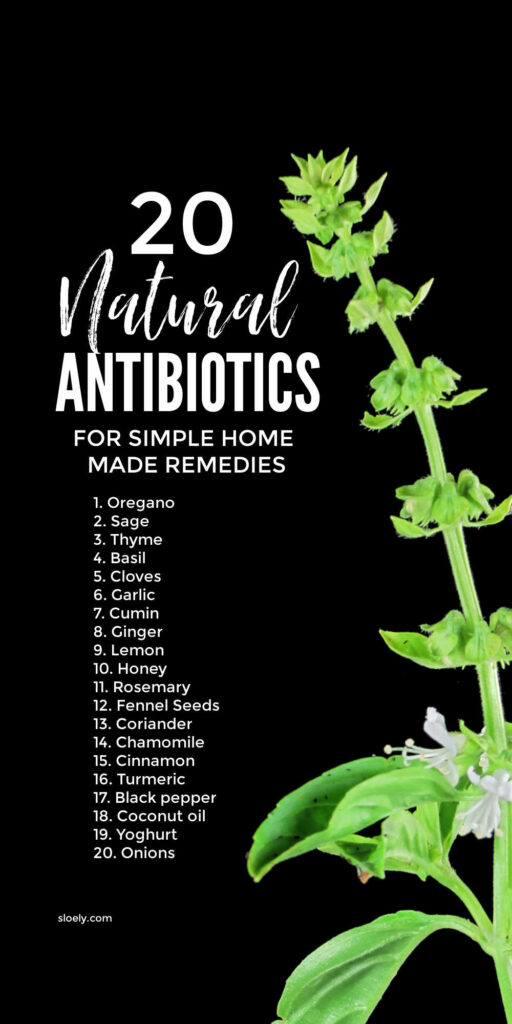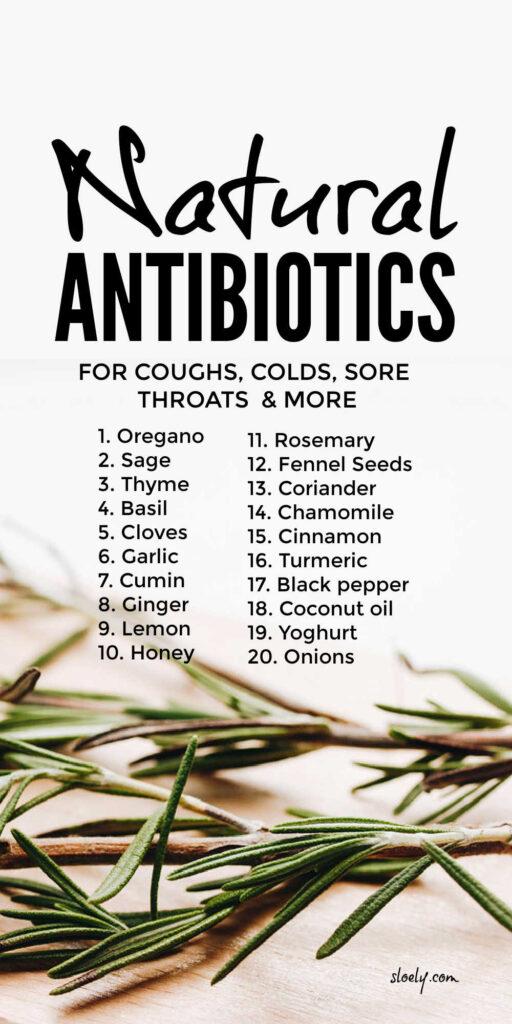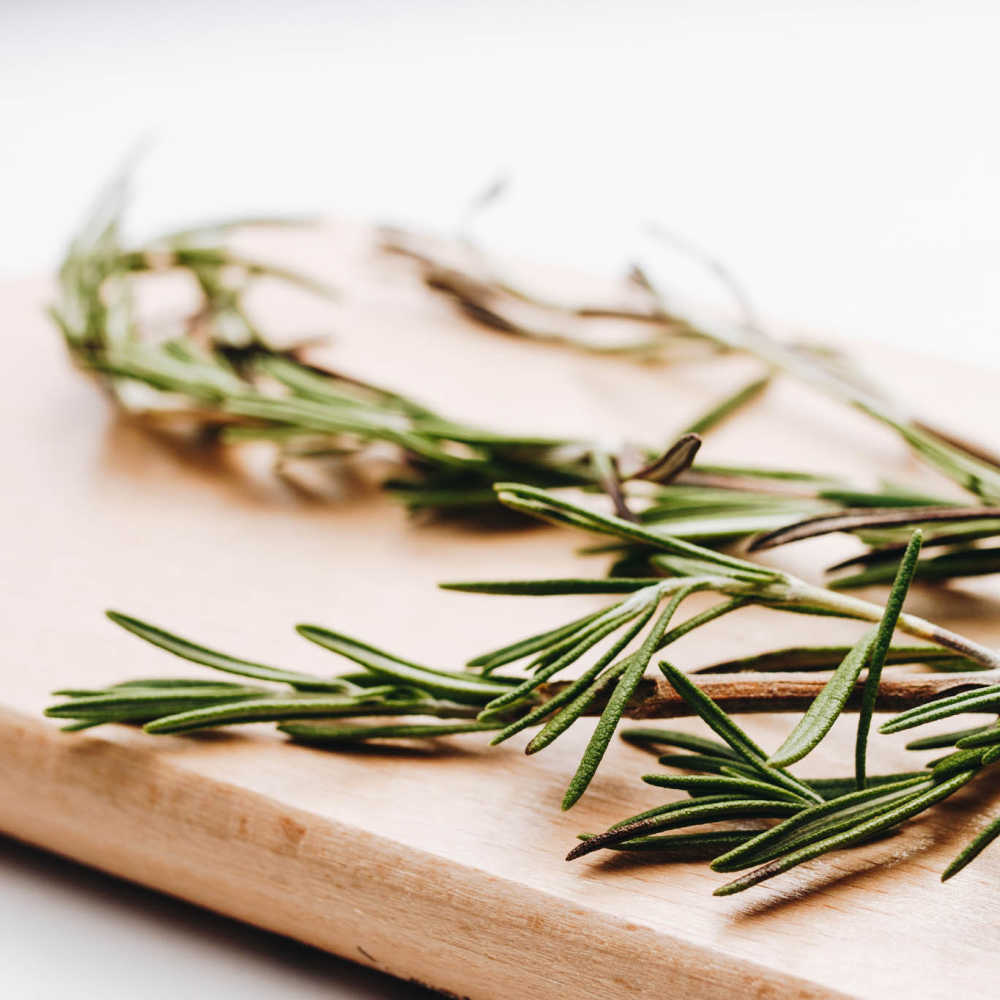
Natural antibiotics have an incredibly important role to play in healing all sorts of minor infections.
That’s not to say we don’t sometimes need the full power of prescribed antibiotics. Of course we do. I had an infected spider bite the size of a tennis ball last summer and they were essential!!
But using natural antibiotics for minor infections actually helps preserve the power of penicillin because – as the World Health Organisation has said – over use is creating horribly nasty antibiotic resistant bugs.
And more and more research shows traditional natural antibiotics demonstrate significant antimicrobial activity against bacteria that cause infections.
So I have for you here a guide to how you can use natural antibiotics in super simple home remedies to tackle minor infections from specific bacteria without being a Hogwarts worthy herbologist.
All of the natural antibiotics in the guide are everyday herbs, spices and cooking ingredients we have in our kitchen cupboards, fridge and garden. And there are no links in the guide – I promise – to fancy essential oils or anything else at all you need to buy. We’ve all got quite enough clutter as it is!!
In the guide I’ll take you through 20 of the best natural antibiotics and explain the infections they help heal and how to use them. If you want help with a specific infection jump to the Natural Antibiotic Remedies section.
Hopefully, this will be a really useful quick reference for you the next time someone in your family has a minor infection so do bookmark it or save it for later. And if you think it is helpful please do share.
Please note I am not a doctor and this post does not provide qualified medical advice. Infections can quickly become critically serious medical problems and you should seek urgent medical advice if the infection persists or spreads or you have a fever or any of the following symptoms.

How To Take Natural Antibiotics
How To Use Natural Antibiotics
Natural antibiotics are very easy to use in home remedies with 3 simple techniques: infusions, decoctions and a poultice. I know they sound crazily complicated. They are not and you need no special equipment to make them :
- Infusions : soak soft herbs in just boiled water for anything from a few minutes for a light tea to 12 hours for a stronger solution.
- Decoction : boil and simmer seeds, bark & roots cinnamon to extract their oils.
- Poultice : directly apply mashed up herbs to the skin under a cloth. There are simple tips here on how to make a poultice with herbs.
These techniques can be used with fresh and dried herbs and spices.
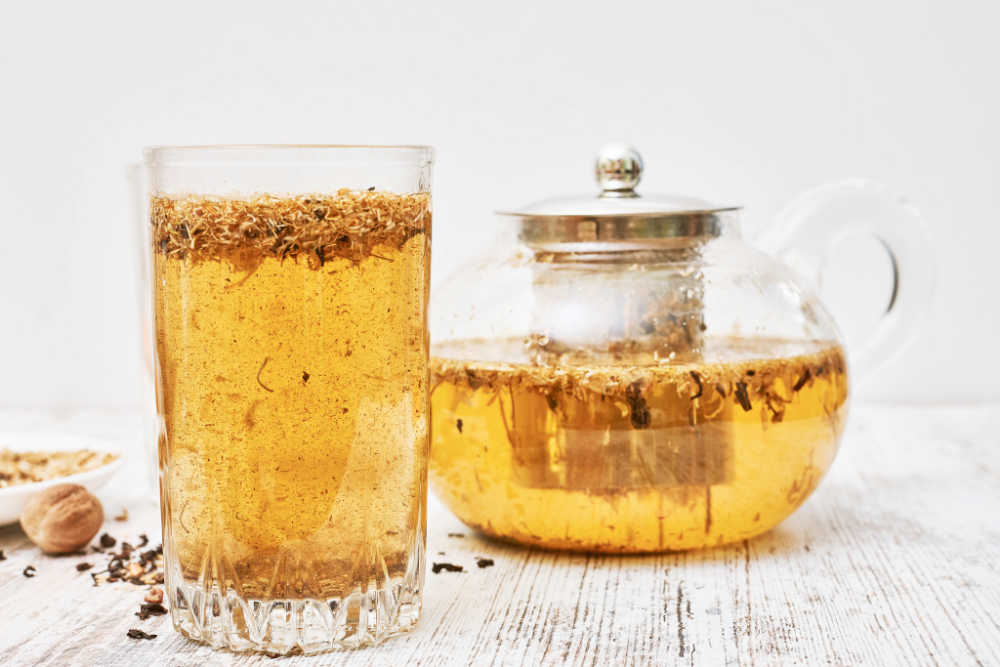
When To Take Natural Antibiotics
Natural antibiotics seem to be of most value for minor infections when they are taken early at the first sign of for example blocked sinuses, a sore throat or cystitis.
They may also help prevent infection as part of our daily diet. We are exposed to numerous bacteria everyday and a diet rich in natural antibiotics helps our whole digestive system from mouth to gut keep on top of them.
Taking Natural Antibiotics In Moderation
Us humans have a terrible tendency to go overboard on the latest fad and turn a simple virtue into a horrid vice.
Natural antibiotics taken in excess can – like everything else – cause us health problems. Don’t start drinking gallons and gallons of potently powerful infusions and expect good results!!
Currently there is not clear controlled research on how much of these natural antibiotics is needed to relieve minor infections. The best guidance at the moment seems to be to take small amounts early – and preventatively to stop recurrence – in moderation.
Please remember to seek urgent medical advice if you have persistent or spreading infection, fever or any of the following symptoms.
Natural Antibiotics & Essential Oils
Essential oils are extracted from naturally antibiotic plants by pressing, distillation and solvents such as alcohol. They contain a very concentrated form of a plant’s oils and can be used in natural antibiotic remedies.
But there are some big problem with essential oils.
They are potent so must be taken with great care.
And sadly, some of the big name essential oil businesses are basically pyramid schemes who make much of their money by signing up sellers or making grand claims about huge numbers of oils people don’t need. Their profits have led to a flood of poor quality oils from who knows where all over the internet.
Personally, I use very few essential oils and only buy them from a local herbalist that has been around for almost two hundred years!! None of the natural antibiotic remedies covered here require essential oils but if you do buy them please do look out for suppliers you can really trust.
Growing Natural Antibiotics

Even the least green fingered among us can easily start a little healing herb garden inside or outdoors on a balcony or patio to grow some of the most useful natural antibiotics including :
20 Natural Antibiotics
Reading the guide you will see a good number of different antibiotics are all helpful for a single problem like sinus infections or tummy bugs. This is really helpful as it means we don’t have to over rely on a single solution.
If you are taking natural antibiotics over a couple of days for a specific problem or preventatively in your every day diet, do mix them up and take different ones on different days.
Turmeric
Turmeric has long been used in traditional remedies and research now shows it has antimicrobial powers against common bacteria such as salmonella, e-coli, s aureas and h pylori that cause stomach, bladder and respiratory infections.

So we can use turmeric as a decoction – boil & simmer for 15 minutes – to help ease :
Research shows turmeric is also effective against the fungal infection candida and athlete’s foot.
If you are not keen on turmeric’s flavour, add ginger and once simmered honey, both of which are natural antibiotics that help with all four bacterial infections.
Turmeric can also be drunk as a golden latte in any milk you prefer, just skip the black pepper as it aggravates mucous lining infections. Alternatively, I stir half a teaspoon of turmeric and ginger into a glass of kefir when my stomach is struggling.
Oregano
Oregano is an incredibly useful natural antibiotic to have in the kitchen.
Research showed an infusion of oregano has antibacterial powers against a range of bacteria including S saprophyticus, h pylori, S. aureus, B. circulans, B. lichiniformis and B. cereus.

A simple infusion of oregano can be used as a natural antibiotic for all sorts of minor infections including :
- Skin infections such as boils
- Small cut & wounds
- UTI & bladder infections
- Gastritis
- Tummy bugs
- Acne & blackheads
- Sinus & other infections triggered by colds
Oregano can also be used as an anti-fungal against athlete’s foot, natural remedy against parasitic pinworms and to help heal sunburn to prevent infection.
You can easily grow oregano both indoors and outdoors as a natural antibiotic.
Thyme
Tiny thyme leaves rich in thymol are a natural antibiotic powerhouse.

Research has shown thymol can inhibit bacteria that cause digestive infections e.g. salmonella & e coli, skin infections and mouth & throat infections. So you can drink, gargle or apply an infusion of thyme as a natural antibiotic for :
- Tummy bugs
- Gastritis
- Diarrhoea
- Bloating
- Bladder infections
- Minor cuts and grazes
- Sore throats
- Mouth infections
Thyme can also help get rid of pinworm & head lice parasites, fungal ringworm & athletes foot PLUS viral cold sores.
It really is that powerful and is super simple to grow from cuttings and seeds both inside and outdoors as part of a little herbal healing garden.
Ginger
Ginger is a really useful natural antibiotic because it antiemetic (relieves nausea) as well as anti-inflammatory so it is very gentle to take when we feel poorly with a bug. But that doesn’t mean it isn’t powerful.
Research shows it can inhibit a wide range of bacteria including e-coli and salmonella plus h pylori. And ginger has added power because it has been shown to act as an anti-viral against colds which can get to work before our colds have a chance to turn into infections.
You can make decoctions of ginger with both fresh ginger root and ginger powder to ease :
- Gum disease
- Gastritis
- Tummy bugs
- Sinus infections
- Chesty coughs
- Sore & swollen throats
You can add honey once ready or for children add ginger to warmed milk.
Ginger can also lower blood sugar and help with morning sickness, period pain, cold sores, pinworms, constipation, dandruff and bloating. You can also drink ginger headache tea for stress and tension headaches. How amazing is that!!
And of course it tastes delicious!!
Sage
You don’t have to save sage for your holiday stuffing. It is actually a useful natural antibiotic in the kitchen which has shown antimicrobial activity against a range of bacteria from Streptococcus mutans to K. pneumoniae.
Sage can be drunk or gargled in an infusion or applied as a poultice to help with minor infections including :
- Mouth infections that cause dental plaque
- Boils
- Tummy bugs
- Sore throats
- Chest infections – it is worth drinking preventatively if you have a chesty cold or cough.
- Urinary tract infections especially recurrent ones in the elderly.
Common sage is easy to grow in a basic herb garden.
Honey
Honey really does have the wow factor in store cupboard natural remedies.
It is not just a natural antibiotic. It is also a natural antihistamine, anti-fungal and anti-viral and seems to have healing powers that help damaged cells repair themselves. This is super important because the mucous lining of our digestive and respiratory system keeps bacteria out. When this lining is damaged we are more vulnerable to persistent infection.
So honey is a great addition to natural remedies for all sorts of minor conditions including :
Honey can also help ease viral cold-sores.
Some people claim it is best to buy local honey as a natural antihistamine for allergy relief as it will be symbiotic with the pollen in your area. I have no idea if this is true but shopping locally always makes me feel better so I’ll buy it 
Basil
Basil is another naturally antibiotic herb many of us already have in our kitchen.
Research shows it can inhibit the growth of drug resistant e coli bacteria. In a simple infusion or poultice it can be used to help ease all these infections :
- Acne & blackheads
- Ear
- Tummy bugs
- Urinary
- Respiratory
- Cuts & grazes
Basil is also another useful herb to help get rid of pinworms.
Fresh basil can itself be the source of bacterial stomach infections as it doesn’t keep well fresh, so basil is a really good herb to grow in a simple herb garden so you can pick it as you need it.
Rosemary
Fragrant rosemary has demonstrated antimicrobial activity against a range of bacteria including e coli, salmonella, listeria, S. aureus and B cereus. Rosemary can be used in natural antibiotic infusions, poultices and steams against :
- Tummy bugs
- Boils
- Cuts & grazes
- Nasal & sinus infections – use as a gentle steam with lightly steaming but not scorching hot water
- Spots & blackheads
You can easily grow rosemary but it does spread so is better for bigger herb gardens or as a hedging shrub that can actually help to keep cats out of the garden!!
Garlic
Garlic is a very valuable natural antibiotic that can actually help balance our immune system so it doesn’t over react to infection and the allicin in garlic is active against a wide range of bacteria including clostridium difficile.
Garlic can be a helpful natural antibiotic against :
- oral infections
- tummy bugs
- digestive infections connected to constipation
- colitis
- sinus infections
- chest infections from colds & coughs
Simply chewing raw garlic can release the active allicin. You can mix it with honey – another natural antibiotic – to make it more palatable. Or you can seep crushed garlic for just a few minutes to make an infusion to which you add honey.
Garlic does show antimicrobial activity against the h pylori bacteria a major cause of gastritis. But it can aggravate a damaged stomach lining so may be best avoided. Garlic can trigger acid reflux and heartburn if you already have problems with your LES sphincter so again is best avoided.
Garlic can also be a helpful part of candida cleanse, in getting rid of pinworms and against viral cold sores and fungal athlete’s foot.
As with all of these natural antibiotics, moderation is key. We can eat too much garlic and one to two cloves a day is commonly regarded as safe and sufficient.
Surprisingly it is very easy to grow garlic to protect your other plants from pests & diseases.
Fennel Seeds
Fennel seeds have traditionally been used as natural antibiotics and research now shows they have have various antimicrobial powers.
You can make your own simple fennel seed decoction by boiling a teaspoon of slightly crushed fennel seeds with a half teaspoon or small piece of sliced ginger and then simmering for 10 minutes or so. Add a teaspoon of honey if preferred.
Sip or gargle your fennel seed tea for :
- Bad breath
- Urinary tract infections
- Sinus infections
- Chesty coughs
- Digestive infections causing bloating
Cilantro & Coriander
Coriander or cilantro has demonstrated antimicrobial activity against salmonella and s. aureus.
An infusion of cilantro leaves or decoction of coriander seeds can help with :
- Tummy bugs
- Chesty coughs
- Bladder infections
You can easily grow cilantro inside and outdoors so you can use it not only in natural remedies but also as a gut healthy garnish for everyday meals.
Chamomile
Chamomile is a wonderfully gentle natural antibiotic that can help our bodies heal everything from colds and skin infections to tummy bugs. Part of its power seems to be that it helps out body switch from fighting mode into healing mode so we can recover better from sickness.
Chamomile can also provide natural headache relief and be very helpful in facials to remove blackheads in delicate skin.
Onions
Onions like garlic and the rest of the allium family are powerhouse natural antibiotics. They are also anti-inflammatory and can help our bodies react to infection without over reacting.
They can be used in simple natural remedies for :
- Tooth infections
- Gum infections
- Tummy bugs
- Chest coughs
Onion infusions obviously aren’t the loveliest so a simple onion and garlic broth can be a good way to enjoy their benefits. Some people also swear by an onion poultice for really chesty coughs.
Onions are common triggers for acid reflux and heartburn so eat with caution if you are suffering with these.
Cloves
We tend to forget about cloves outside the Christmas season but they are actually a broad range natural antibiotic which was why there were used traditionally in natural remedies and preserving food.
Cloves also have natural anaesthetic powers so they can be especially helpful for painful infections.
You can use a decoction of cloves with ginger & cinnamon to make it more palatable for :
- Tooth ache
- Gum disease
- Bacterial tooth plaque
- Bad breath
- Tummy bugs
Cloves may also help heal ulcers and damaged stomach lining from gastritis. Clove tea can also provide instant headache relief and cloves can even help to prevent moths!!!
Cinnamon
Cinnamon is another natural antibiotic shown to act against range of bacteria including e coli and salmonella and to have anti inflammatory powers.
Make a decoction of cinnamon bark or power to sip or gargle for :
- Tooth ache
- Gum infections
- Bad breath
- Tummy bugs
- Diarrhoea
It’s gentle anti-inflammatory powers also make cinnamon a useful remedy for blocked sinus, swollen throats and bloating. It is also a super helpful way to get rid of ants naturally.
Cumin
Cumin is another anti-inflammatory, natural antibiotic with a wide range of health benefits that has been shown to be active again the bacteria e coli & s aureus so again can be helpful for relieving minor infections such as:
- Tummy bugs
- Cystitis
- Boils
Cumin is not great drunk as an infusion but you can add to a turmeric latte.
Alternatively cumin is a great spice to include in everyday meals as it is an iron rich food – useful for vegetarians – that can also lower blood sugar. I add it to quick green soups and hearty fall soups so I know we’re all getting a regular dose.
Black Pepper
Black pepper has been used in all sorts of traditional medicines as an anti-inflammatory natural antibiotic and research now shows black pepper can inhibit bacteria including e coli and s aureus.
So flavouring our food with black pepper can help to keep our whole digestive system rich in a natural antibiotic that prevents digestive infections. It can also help to unblock sinus congestion. Black pepper can also be a good alternative to salt which can raise blood pressure and cause fluid retention & bloating.
You can also drink black pepper in a decoction. And many people add it to turmeric lattes because it is believed to “activate” the turmeric.
But as ever moderation is key. And black pepper is NOT great for some of us!!
Research shows both black and red pepper trigger pepsin which is a useful enzyme for digesting meat but in excess a big problem for people with acid reflux and heartburn. Pepper can also painfully aggravate a damaged stomach lining if you have gastritis. So pepper is best avoided until heartburn and gastritis are healed and then taken in moderation.
Lemon
The natural antimicrobial and anti septic power of lemon is well known. That is why citric acid is used so widely as a food preservative and is popular as a natural cleaning ingredient.
Again research shows lemon can see off a range of bacteria including e coli and has lots of other health benefits so for many people – BUT not all!! – it is a great addition to our diet and can be used in natural remedies to help ease and prevent infection from :
Lemon is also helpful for relieving pregnancy nausea.
BUT lemon juice can aggravate some health conditions. It is very acidic – ph 2 – and like pepper triggers the release of the enzyme pepsin. Unfortunately many of us from guzzling huge gallons of sodas, citrus juices and white wine have a problem with pepsin that triggers painful heartburn and gastritis.
So avoid lemon juice until heartburn and gastritis are well healed.
And for most of us the real benefit comes from moderation. A little squeeze helps us absorb iron from green vegetables and digest the protein in red meat whilst protecting us from potentially harmful bacteria in our gut.
Coconut Oil
Coconut oil is a super useful natural antibiotic in our kitchen cupboards.
That’s partly because – like honey – it is also anti-fungal and anti-inflammatory and promotes healing. But also because it can be applied easily to our skin as well as digested and because its antimicrobial powers come in a different form than most herbs and spices. Effectively it lets us come at infections from another angle.
Coconut oil can help with a range of infections including skin and scalp infections triggered by a virus, fungus or allergy :
- Psoriasis
- Acne & blackheads
- Cold sores
- Ring worm
- Candida
- Mouth infections
- Tooth ache
- Athlete’s foot
- Dandruff
- Pin worms
- Chest infections
- Head lice
- Sunburn
It can also be a wonderful home remedy for frizzy hair.
Yoghurt
Many of us now know that yoghurt – or yogurt to you Americans – is a probiotic that helps restore gut health.
But it can also be used as a natural antibiotic against specific bacteria including staphylococcus that contributes to severe dandruff.
It can provide instant relief for a sore throat and although it is usually recommended we avoid dairy with chest and sinus infections gently dosing up with yoghurt can help to make sure infection doesn’t progress into our stomach.
Yoghurt can also provide healing relief as a natural sunburn remedy that prevents infection.
Yoghurt is also very valuable as a magnesium rich food. Magnesium doesn’t play a direct role in our body’s response to bacterial infection but it critical for balancing our hormones and imbalanced hormones can play havoc with our immune system.
Natural Antibiotic Remedies
Many common minor infections can be relieved quickly with a range of natural antibiotics we already have in our home or garden. That’s great because we don’t have don’t have to go out and buy anything.
But also because it gives us multiple slings to our bow. We don’t have to double down on one single remedy that might cause its own problems in excess and can alternate between or combine different natural antibiotics.
In this section of the guide you’ll find a list of which natural antibiotics you can use for different minor conditions. Click on each item to read more about that natural antibiotic or on the full guide for that condition for even more help.
Digestive Infections
- Bladder, Cystitis & UTI : Oregano, Thyme, Sage, Basil, Fennel seeds, Cilantro, Cumin
- Bloating : Thyme, Ginger, Fennel seeds, Cinnamon
- Diarrhoea : Thyme, Cinnamon
- Gastritis : Turmeric, Oregano, Thyme, Ginger, Honey, Cloves & for more help read about these
- Tummy Bugs : Oregano, Thyme, Ginger, Sage, Basil, Rosemary, Garlic, Cilantro, Chamomile, Onions, Cloves, Cinnamon, Cumin
For more advice and natural remedies read these guides :
Ear, Nose & Throat Infections
- Blocked Sinus : Turmeric, Oregano, Ginger, Honey, Rosemary, Garlic, Fennel seeds, Cinnamon, Black pepper, Lemon
- Colds : Oregano, Ginger, Garlic, Chamomile, Lemon
- Chesty Coughs & Colds : Sage, Honey, Garlic, Fennel seeds, Cilantro, Onions, Coconut oil
- Coughs : Ginger, Honey, Basil, Lemon
- Ears : Basil
- Sore Throat : Turmeric, Thyme, Ginger, Sage, Honey, Cinnamon, Lemon
For more advice and natural remedies read these guides :
Oral Infections
- Bacterial Plaque: Sage, Cloves
- Bad Breath : Fennel seeds, Cloves, Cinnamon
- Gum Disease : Ginger, Onions, Cloves, Cinnamon
- Mouth Infections : Thyme, Sage, Garlic, Onions, Coconut oil
- Toothache : Onions, Cloves, Cinnamon, Coconut oil
Skin Infections
- Acne: Honey, Basil, Coconut oil, Cinnamon
- Boils : Oregano, Sage, Rosemary, Cumin
- Minor Cuts & Grazes : Oregano, Thyme, Basil, Rosemary, Chamomile
- Mosquito Bites : Honey, Lemon, Thyme, Basil, Rosemary, Chamomile
- Psoriasis : Coconut oil, Turmeric
For more advice & natural remedies read this guide :
Fungal Infections
- Athletes Foot : Thyme, Garlic, Turmeric, Rosemary, Cinnamon, Coconut oil
- Candida : Turmeric, Garlic, Coconut oil, Cinnamon, Oregano
- Dandruff : Honey, Coconut oil, Yoghurt, Ginger
- Ring Worm : Thyme, Coconut oil, Garlic, Oregano
Parasite Infections
- Head Lice : Thyme, Coconut oil
- Pinworms : Oregano, Thyme, Ginger, Basil, Garlic, Coconut oil
For more help read this guide :
Viral Infections
- Cold Sores : Thyme, Ginger, Honey, Garlic, Coconut oil
For more help read this guide :
I do hope these tips on using natural antibiotics help you deal with minor infections quickly and easily before they get nasty. Please do share with friends if they were useful.
And do let me know how you get on.
For more simple natural remedies do explore my other posts that are full of practical tips for healthier living with everyday store cupboard ingredients :
- Natural Remedies For Coughs & Colds
- Natural Remedies For Gut Health
- Natural Remedies For Babies
- Natural Remedies For Menstrual Cycle
- Natural Relief For Common Childhood Ailments including Pinworms & Threadworms, Hair Lice, Sunburn, Verrucas & Mosquito Bites
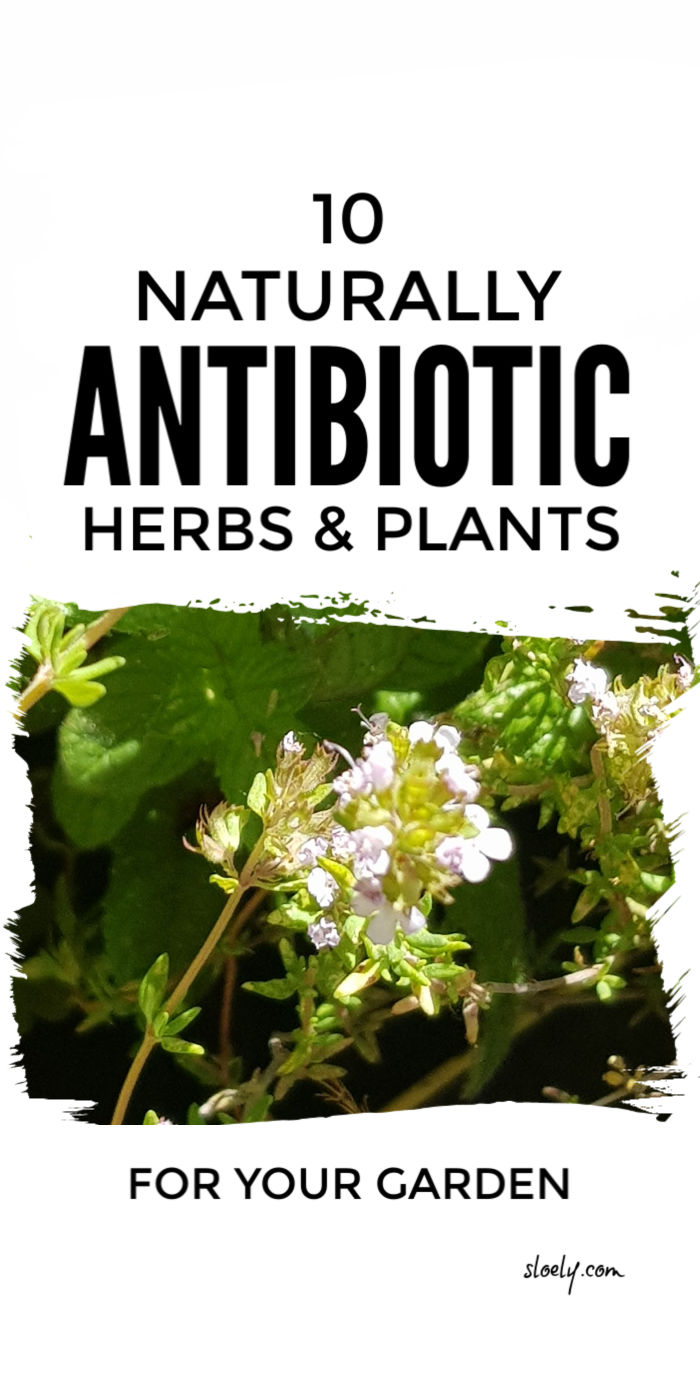 Original image sources: leaves, Herbal tea on wooden background, rosemary, herb garden
Original image sources: leaves, Herbal tea on wooden background, rosemary, herb garden
